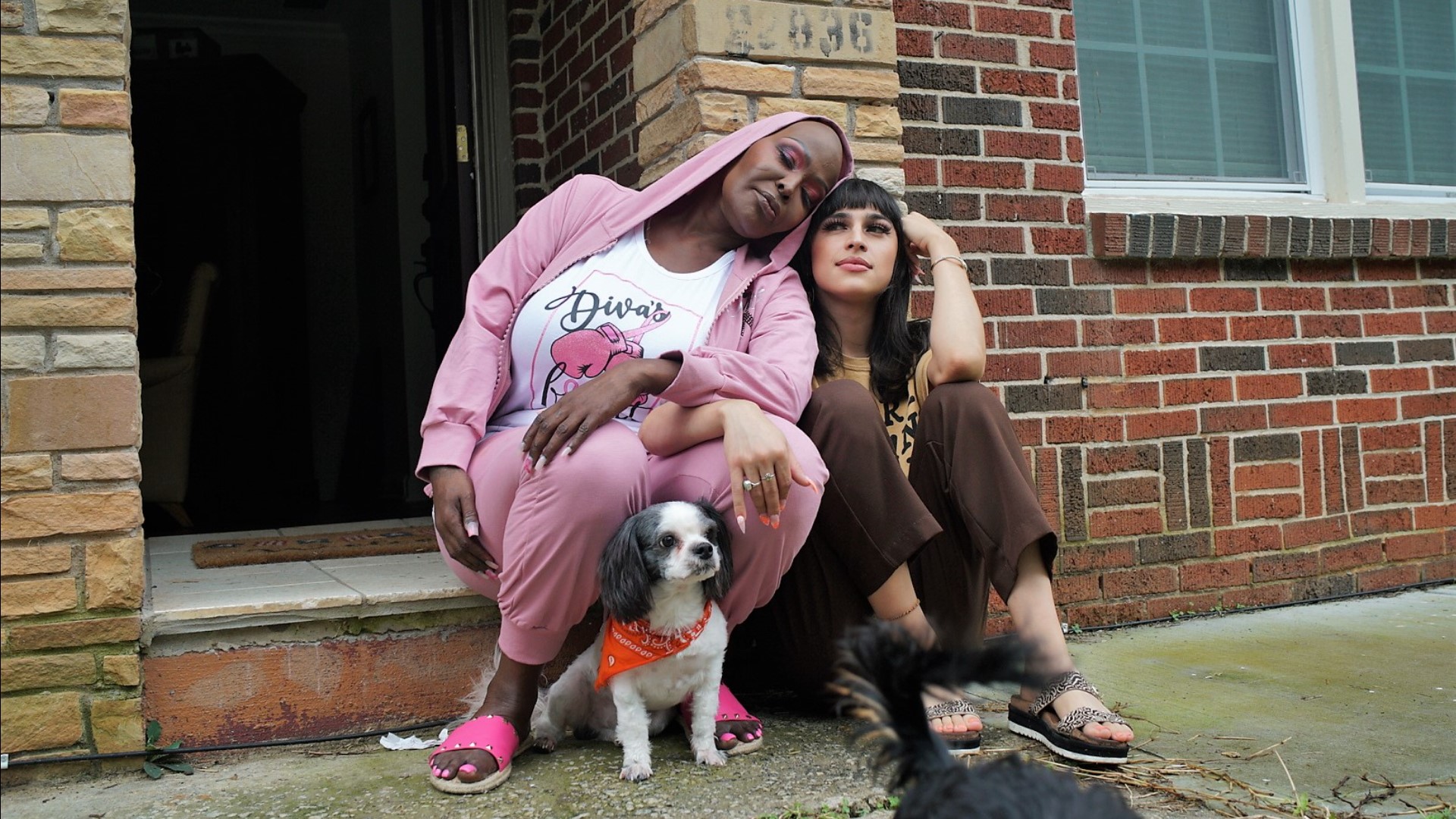A Trans woman was homeless while facing a breast cancer diagnosis. Everything changed when she got one phone call
Tomorrow Valentino was living in a hotel after she was diagnosed with breast cancer. Then she got a call from an organization dedicated to fighting homelessness.

It started with COVID.
Tomorrow Valentino’s friend called her a Lyft to the hospital from the hotel room she was living in when she couldn’t breathe and felt pain in her breast. Days later, after a visit to Northside Hospital, doctors told her the news – she was diagnosed with stage three breast cancer and cellulitis of the breast.
“I felt like my life has already been hard throughout my whole life and now this? And all I ever wanted to do was be a girl. All I ever wanted to do was be a woman,” Valentino said as tears trailed down her cheeks.
Valentino left a hostile home at 17, living on the streets and doing sex work to survive. She said her parents pushed her away, unaccepting of her being a Trans woman.
As Tomorrow lingered in the darkness of her diagnosis, the support she needed to battle back was already in her hands.
"The tubes running out of my arm and my hands. I just prayed. I laid on my face I just prayed. And the next morning my phone rang, and I heard, 'Hello?'" Valentino said.
On the other line was Jesse Pratt Lopez, the founder of the Trans Housing Coalition (THC), an organization dedicated to alleviating chronic homelessness for Trans folks in Atlanta, particularly Black and Brown Trans women.
"She was like, 'I don’t want you to worry about a thing. We have somewhere for you to go," Valentino said.
The story of the THC parallels with a rich history of the Trans community taking care of each other. Many Trans people, often ostracized from family and society, create their own communities by developing webs of support with chosen sisters and mothers. Stigma and discrimination are just two of the factors contributing to high levels of homelessness amongst trans people according to the Williams Institute at the University of California, Los Angeles. The U.S. Transgender Survey reported roughly 30% of its nearly 28,000 transgender respondents had experienced homelessness at some point in their lives.
Chapter 1 The Stroll in Atlanta
When Lopez took to the streets of Atlanta’s Old Fourth Ward in 2019, she connected with a community of Trans women fighting for survival.
"And I met ReVon on what is known as 'The Stroll' where a community of Black Trans Women live and do sex work," Lopez said.
A photographer by trade, Lopez said she was driven to document her experience, chronicling the plight of Black Trans women in the city over the course of several months. Lopez used social media to post pictures along with a link to a "Homeless Black Trans Women Fund," with the hopes of at least getting the women off the streets for Christmas.
"It was really exciting, but as quickly as the funds came, they went," Lopez said.
She was starting to believe there was no solution when a new light emerged amid darkness. The campaign went viral as protests swept the nation and a movement for Black lives ignited in the summer of 2020.
"It went from a few thousand to 100,000 to now several million," Lopez said.
Partnering with other Atlanta activists and organizers led Lopez to eventually develop what is now the THC. The organization passed it’s one-year anniversary this summer, successfully appointing a board, case managers, and providing housing and rental assistance to hundreds of Trans and gender non-conforming people along the way.
Chapter 2 Creating Home
The THC recently bought one home and are renting another. Both are four-bedroom transitional houses, one of which being the quaint home in a quiet south Atlanta neighborhood where Valentino now lives with her roommates, who she calls "sisters," and her dogs, Dolce and Gabbana. The home is called Muffin’s Place in honor of its namesake Muffin Bankz, a Trans woman who was shot to death in Atlanta earlier this year.
"I have a room with a king-sized bed a big mirror and all this was already in the room. I didn’t have to furnish anything," Valentino said.
Both properties serve as transitional housing, a safe space where Trans folks can reside to escape the cycle of homelessness and work toward the future they want.
"Speaking on behalf of my other sisters, the goal is not for us to get so comfortable that this becomes our home, but that we get so comfortable that we want to move on, so this becomes somebody else's home," Valentino said.
The THC operates by the "housing first" philosophy, meaning that everyone deserves housing no matter their circumstance. Though Lopez said she and the THC team hasn’t solved chronic homelessness in the city, they're a step in the right direction and witnessing the progress is "mind-boggling."
"I’m just starting to see it. 'The Gurlz' keep telling me that every time they pass The Stroll that they don’t see anyone anymore. And just that small fact, that small community that stayed over there that is no longer on the streets. Some of them had been on the streets for 10 years," said Lopez.
As her fight with cancer continues, Valentino said her outlook on life is more positive now thanks to the help of the THC.
"To be taken from the streets and have to plead for my life. To be able to sleep in a bed comfortable and open up my eyes and see the sunshine on my face. It's a blessing," Valentino said.
The THC has helped Tomorrow Valentino set up a GoFundMe to assist with her medical bills as she continues with chemotherapy treatments. Lopez said she wants others to know the THC invites collaboration with other organizations. People can also donate online to get involved.

